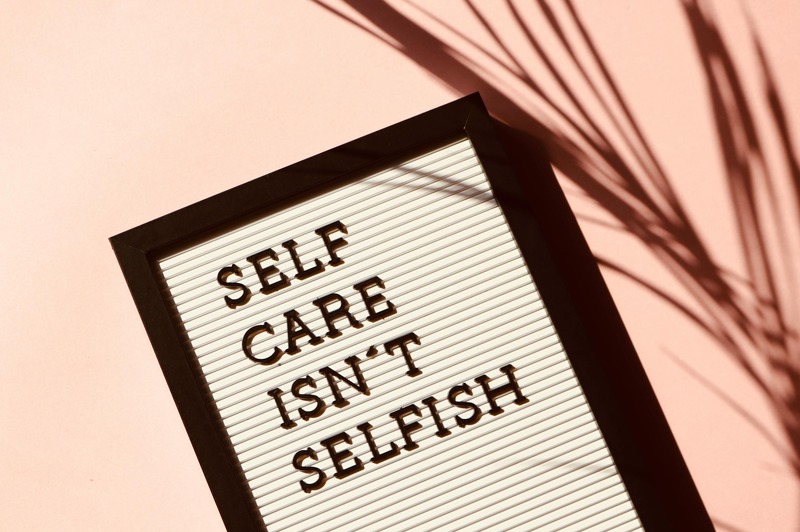
Self-Care Routine: Easy and Simple Ways to A Better You
A good self-care routine is necessary in order to be a better you. Your mind and body deserve attention, especially in today’s fast-paced world. Developing a daily routine can feel overwhelming, but with thoughtful steps, it becomes manageable and rewarding. By setting intentions and making small changes, you can build a practice that enhances your well-being. Let’s explore how to create a self-care routine that works for you.
Why a Self-Care Routine Matters
Self-care goes beyond bubble baths and spa days. It’s about maintaining your physical, emotional, and mental health. A well-structured routine provides balance and reduces stress. When you invest in yourself, you build resilience for life’s challenges.
Think about how often you neglect your needs to prioritize others. By creating time for self-care, you show yourself respect and love. This isn’t selfish; it’s essential. A good self-care routine keeps you grounded and energized, enabling you to show up better for others.
Start Small with Simple Habits
You don’t have to overhaul your life overnight. Begin with manageable habits that fit your lifestyle. For instance, drink more water, take a 10-minute walk, or stretch in the morning.
These small actions might seem insignificant, but they set the foundation for a sustainable self-care routine. As you commit to these practices, they’ll evolve into positive habits. The key is consistency, not perfection.
Starting small also prevents burnout. Overloading yourself with unrealistic goals often leads to frustration. Instead, focus on achievable steps, and gradually add more as you feel ready.
Personalize Your Self-Care Routine
Self-care is not one-size-fits-all. What works for someone else might not work for you. Take time to identify what brings you joy and relaxation.
Start by evaluating your needs. Are you looking to reduce stress, improve fitness, or find mental clarity? Use this insight to tailor your self-care routine. For example, if stress is your main concern, activities like meditation or journaling might help.
Don’t be afraid to experiment. It’s okay if something doesn’t feel right. Adjust your routine until it fits your lifestyle and goals.
Prioritize Time for Your Self-Care Routine
Time management plays a critical role in self-care. If you’re always busy, prioritizing your routine may seem impossible. However, even a few minutes a day can make a difference.
Set aside dedicated time for your self-care routine, just as you would for important meetings. Use your calendar or daily planner to schedule it. Treat this time as non-negotiable.
Morning or evening routines often work well, as they frame the day or wind it down. Experiment to see what works best. Remember, prioritizing self-care isn’t wasting time; it’s investing in your well-being.
Incorporate Physical Self-Care
Physical health forms the foundation of overall well-being. Without it, your energy and mood suffer. Include activities that nourish your body in your self-care routine.
This can include exercising regularly, eating nutritious meals, or getting enough sleep. You don’t need to run marathons or follow extreme diets. Simple practices, like stretching or preparing a healthy meal, can make a big impact.
Pay attention to how your body feels. If you’re tired, rest. If you’re stiff, move. Your self-care routine should support, not strain, your body.
Nurture Your Emotional Well-Being
Emotional health is just as important as physical health. A balanced routine should address your feelings.
Consider journaling as a way to process emotions. Writing down your thoughts can help release stress and clarify your mind. Meditation is another excellent tool. It promotes mindfulness and reduces anxiety.
Don’t overlook the power of connection. Spend time with loved ones who uplift you. Share your feelings with them. Building strong relationships is a crucial part of your self-care routine.
Stick to Your Self-Care Routine
Creating a self-care routine is one thing; sticking to it is another. Life gets busy, and it’s easy to push self-care aside. However, consistency is key to long-term benefits.
Track your progress to stay motivated. Use a journal or app to monitor your activities. Celebrate small wins, like completing a week of consistent self-care.
Stay flexible. Your self-care routine doesn’t need to be rigid. If something isn’t working, tweak it. Life changes, and your routine should adapt.
Overcome Common Obstacles
Barriers to self-care are normal but not insurmountable. Lack of time, guilt, or self-doubt can hold you back. Recognizing these obstacles is the first step toward overcoming them.
If you struggle with time, start small, as mentioned earlier. For guilt, remind yourself that self-care is necessary, not indulgent. Address self-doubt by affirming your worth.
Remember, building a daily routine takes practice. Be patient with yourself. Progress, not perfection, is the goal.
Conclusion: Invest in Your Well-Being
Creating an effective self-care program transforms your life in profound ways. It’s about making deliberate choices to prioritize yourself. By starting small, personalizing your routine, and staying consistent, you’ll see lasting benefits.
Self-care isn’t selfish; it’s essential. When you care for yourself, you’re better equipped to care for others. Take the time to invest in your well-being. Your future self will thank you.
Now is the perfect time to start. What will your daily routine include?






